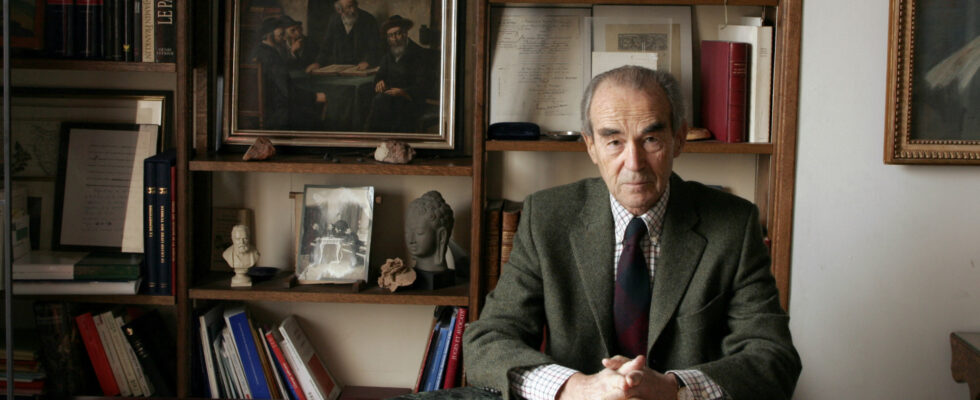On September 17, 1981, in a fiery speech lasting more than two hours, Minister of Justice Robert Badinter solemnly asked the National Assembly to approve the bill on the abolition of the death penalty.
The next day, the text was adopted with 363 votes against 117 out of 486 voting deputies. On September 30, the senators adopted it in identical terms with 160 votes against 126 out of 287 voters. “Law No. 81-908 abolishing the death penalty” will be promulgated on October 9, 1981.
Here are excerpts from Robert Badinter’s speech, which went down in history.
“The debate which is open before you today is first and foremost a debate of conscience and the choice which each of you makes will be a personal commitment. (…) France is great, not only because of its power, but beyond its power, by the brilliance of the ideas, of the causes, of the generosity which won it over at privileged moments of its history.
France is great because it was the first in Europe to abolish torture despite the cautious spirits who, in the country, exclaimed at the time that, without torture, French justice would be disarmed, that, without torture, the good subjects would be delivered to the villains.
France was among the first countries in the world to abolish slavery, this crime which still dishonors humanity. It turns out that France will have been, despite so many courageous efforts, one of the last countries, almost the last – and I lower my voice to say it – in Western Europe, of which it has so often been the home and the pole, to abolish the death penalty. (…) So why did the silence persist and why did we not abolish it? (…) Nothing has been done in recent years to enlighten this public opinion. On the contrary !
“Tomorrow, thanks to you, French justice will no longer be a justice that kills”
We refused the experience of abolitionist countries; we have never questioned the essential fact that the great Western democracies, our loved ones, our sisters, our neighbors, could live without the death penalty. (…) There has never, ever been any correlation established between the presence or absence of the death penalty in criminal legislation and the bloody crime curve. (…)
In fact, those who believe in the deterrent value of the death penalty ignore human truth. Criminal passion is no more stopped by the fear of death than other passions which are noble. (…) The question does not arise, and we all know it, in terms of deterrence or repressive technique, but in political terms and above all of moral choice. (…)
Here is the first evidence: in countries of freedom, abolition is almost everywhere the rule; in countries where dictatorship reigns, the death penalty is practiced everywhere. This division of the world does not result from a simple coincidence, but expresses a correlation. The real political meaning of the death penalty is that it comes from the idea that the State has the right to dispose of the citizen to the point of taking his life. This is how the death penalty fits into totalitarian systems. (…)
Tomorrow, thanks to you, French justice will no longer be a justice that kills. Tomorrow, thanks to you, there will be no more, for our common shame, furtive executions, at dawn, under the black canopy, in French prisons. Tomorrow, the bloody pages of our justice will be turned. At this moment, more than at any other, I have the feeling of assuming my ministry, in the ancient sense, in the noble sense, the noblest that there is, that is to say in the sense of ‘service’. Tomorrow you will vote to abolish the death penalty. French legislators, with all my heart, I thank you.”
